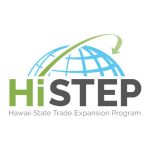Enterprise Zone Program Updates
CHANGES IN THE LAW APPLICABLE TO NON-AGRICULTURAL EZ COMPANIES
Effective 7/1/2008
- You may include leased employees towards your employment count if they were employed with you full-time for at least a year prior to the end of the reporting period.
- For businesses classified as “existing” the hiring requirements have changed. An increase of staff by 10% by the end of the 1st year, and at least 15% in years 4, 5, 6, and 7.
Effective 7/1/2009
- For qualification purposes, you may count gross receipts attributable to the active conduct of trade or business within enterprise zones located within the same county.
- For qualification purposes, you may count full-time employees employed within enterprise zones located within the same county.
- The transfer of title of tangible personal property sold within an enterprise zone shall take place in an enterprise zone located within the same county in which the property is sold.
CHANGES IN THE LAW APPLICABLE TO AGRICULTURAL PRODUCERS OR PROCESSORS
Effective 7/1/2008
- You may include sales from value-added agricultural products to calculate your revenue. This will count towards certification only. You still owe GET on the value-added agricultural retail
- You may include leased employees in your count if they were employed with you for at least a year prior to the end of the reporting period.
- In the event that the business was unable to meet the requirements of the EZ Program for this year due to a force majeure (natural disaster) event, please file the Force Majeure Event Claim Application with the End of Year Report. You may still be eligible to receive EZ benefits during this period.
- For businesses classified as “existing” (rather than “new”) the hiring requirements have changed. An increase of staff by 10% by the end of the 1st year, and at least 15% in years 4, 5, 6, and 7.
- In lieu of hiring more workers, total gross sales must increase by at least 2%.”
Effective 7/1/2009
- For qualification purposes, you may count gross receipts attributable to the active conduct of trade or businesses within enterprise zones located within the same country.
- For qualification purposes, you may count full-time employees employed within enterprise zones located within the same country.
- For qualification purposes, you may count gross sales of agricultural crops produced, or agricultural products processed within enterprise zones located within the same county.
- The transfer of title of tangible personal property sold within an enterprise zone shall take place in an enterprise zone located within the same county.”
Force Majeure Event
Effective July 1, 2008, the Hawaii Legislature passed legislation adding Section “209E-14 – Force majeure event; agricultural businesses” to Chapter 209E affecting enrolled agricultural production or processing EZ businesses.
If a business engaged in agricultural production or processing is:
- Wholly or partially prevented from maintaining eligibility requirements under section 209E-9; or
- Interrupted,
By reason of or through any force majeure event, then the business shall not be disqualified under this chapter. The business shall remain eligible for all tax incentives under this chapter during any period of time while experiencing conditions under paragraph (1) or (2) caused by a force majeure event, and the seven-year eligibility period shall be extended by an equivalent period of time. The business shall be prompt and diligent as practicable in providing the department with notice of a force majeure event or of any situation that may lead to a force majeure event. [L 208, c 143, §1]
- A force majeure event may be accepted by the department by:
- An official announcement or declaration by a federal official or agency;
- An official announcement of declaration by a state official or agency.
- A business engaged in agricultural production or processing may apply annually to the department for allowable benefits under this chapter during a force majeure event by completing and submitting the application form authorized by the department. The business shall also complete and submit annually to the department a department approved end-of-the-year report.
- Upon department approval of a business’ annual force majeure application, the business is eligible to receive annual certification for allowable benefits under chapter 209E, HRS, regardless of whether or not the hiring or revenue requirements under section 209E-9, HRS, have been met. A business claiming to be affected by a force majeure event shall file annual force majeure applications up to the time the force majeure is in effect or the business revenue meets or exceeds revenue reported in the year prior to the first year approval of the business’ force majeure request whichever comes sooner.

